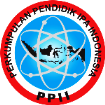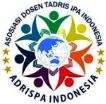Integration of Argumentation Activities in Virtual-Inquiry to Improve Argumentation Skills of Prospective Science Teacher in Basic Physics Courses
Abstract
Argumentation skills are a prominent domain that must be trained for prospective science teacher students. This study aims to determine the effectiveness of science learning which is implemented using virtual inquiry learning in improving the argumentation skills of prospective science teachers. We used a quasi-experimental method with a non-equivalent control class design where researchers divided students into two classes: the experimental class (N = 38) and the control class (N = 38). The learning process in the experiment class was carried out by the virtual-inquiry model which was inserted with scientific argumentation activities, while in the control class, the learning process was carried out using the virtual-inquiry model without inserting scientific argumentation activities. All students involved in the research were given a test to measure argumentation skills between before and after the learning process. Argumentation skills are analyzed in two aspects, namely the completeness of organs and the scientific aspect. Data were analyzed by categorizing each student's answer into each aspect of argumentation skills, both before and after the learning process. After that, the mean difference significance test was carried out. Then, n-gain was used to analyze the increase of argumentation skill. The results indicate that the virtual-inquiry model which was inserted by argumentation activities was better at improving the argumentation skills of prospective science teachers compared to the virtual inquiry model without being inserted by argumentation activities. In the experimental class, the increase in argumentation skills showed high criteria. These results were obtained both on the aspect of organ completeness and the scientific aspect. Meanwhile, in the control class, it is in the low category for the aspect of organ completeness and is in the moderate category for the scientific aspect. These findings indicate that in scientific argumentation training, it is very important to involve students to practice argumentation directly.
Keywords: virtual-inquiry, argumentation skill, scientific aspect of argumentation, organ completeness aspect of argumentation
Full Text:
PDFReferences
Andrini, V. S. (2016). The Effectiveness of Inquiry Learning Method to Enhance Students' Learning Outcome: A Theoritical and Empirical Review. Journal of Education and Practice, 7(3), 38-42.
Arinto, P. B. (2016). Issues and Challenges in Open and Distance e-learning: Perspectives from the Philippines. The International Review of Research in Open and Distributed Learning, 17(2).
Biao, I. (2012). Open and Distance Learning: Achievements and Challenges in a Developing Sub-Educational Sector in Africa. In Distance Education. Intech.
Bird, K. A., Castleman, B. L., & Lohner, G. (2022). Negative Impacts from The Shift to Online Learning During The Covid-19 Crisis: Evidence from a Statewide Community College System. Aera Open, 8, 23328584221081220.
Cetin, P. S. (2014). Explicit argumentation instruction to facilitate conceptual understanding and argumentation skills. Research in Science & Technological Education, 32(1), 1-20.
Clark, D. B., & V. Sampson. 2008. Assessing Dialogic Argumentation in Online Environments to Relate Structure, Grounds, and Conceptual Quality. Journal of Research in Science Teaching. 45(3), 293–321.
Dumford, A. D., & Miller, A. L. (2018). Online Learning in Higher Education: Exploring Advantages and Disadvantages for Engagement. Journal of computing in higher education, 30, 452-465.
Duraippah, K., Hamidon, Z. B., & Ong, P. (2021). Using Instructional Materials to Develop Higher Order Thinking Skills. ASEAN Journal of Open & Distance Learning (AJODL), 13(2), 83-96.
Dwianto, A., Wilujeng, I., Prasetyo, Z. K., & Suryadarma, I. G. (2017). The Development of Science Domain Based Learning Tool Which is Integrated with Local Wisdom to Improve Science Process Skill and Scientific Attitude. Jurnal Pendidikan IPA Indonesia, 6(1).
El Khalick, A., F., Boujaoude, S., Duschl, R., Lederman, N. G., Mamlok‐Naaman, R., Hofstein, A., & Tuan, H. L. (2004). Inquiry in Science Education: International Perspectives. Science Education, 88(3), 397-419.
Erduran, S., & Maria, P. (2008). Argumentation in Science Education. London: Spinger Science.
Garrison, R. (2000). Theoretical Challenges for Distance Education in The 21st Century: A Shift from Structural to Transactional Issues. The International Review Of Research In Open And Distributed Learning, 1(1).
Glassner, A., Weinstock, M., & Neuman, Y. (2005). Pupils' Evaluation And Generation Of Evidence and Explanation in Argumentation. British Journal of Educational Psychology. 75(1), 105-118..
Hake, R.R. (1999). Interactive-engagement vs Traditional Methods: A Six Thousand Student Survey of Mechanic Test Data for Introductory Physics Courses. Journal of Physics. 66 (1): 64-74.
Harlen, W. (2014). Helping Children’s Development of Inkuiri Skills. Inkuiri in Primary Science Education, 1(1) 5-19.
Heong, Y. M., Yunos, J. M., Othman, W., Hassan, R., Kiong, T. T., & Mohamad, M. M. (2012). The Needs Analysis of Learning Higher Order Thinking Skills for Generating Ideas. Procedia-Social and Behavioral Sciences, 59, 197-203.
Kai Wu, H. (2006). Developing Sixth Graders’ Inkuiri Skills to Construct Explanations in Inkuiri-based Learning Environments. International Journal of Science Education, 28 (11): 1289-1313.
Khalaf, B. K., & Mohammed Zin, Z. B. (2018). Traditional and Inquiry-Based Learning Pedagogy: a Systematic Critical Review. International Journal of Instruction, 11(4), 545-564.
Lazarou, D., & Erduran, S. (2021). “Evaluate What I Was Taught, Not What You Expected Me to Know”: Evaluating Students’ Arguments Based on Science Teachers’ Adaptations to Toulmin’s Argument Pattern. Journal of Science Teacher Education, 32(3), 306-324.
Kuhn. (2010). Teaching and Learning Science as Argument. Wiley Periodicals, Inc. Sci Ed, v (94), 810-824,
Musingafi, M. C., Mapuranga, B., Chiwanza, K., & Zebron, S. (2015). Challenges for Open and Distance Learning (ODL) Students: Experiences from Students of the Zimbabwe Open University. Journal of Education and Practice, 6(18), 59-66.
Osborne, J., Erduran, S. & Simon, S. (2004). Enhancing The Quality of Argumentation in School Science. Journal of Research in Science Teaching. 41 (10), 994-1020.
Rennie, L. J., Feher, E., Dierking, L. D., & Falk, J. H. (2003). Toward an Agenda for Advancing Research on Science Learning in Out‐of‐School Settings. Journal of Research in Science Teaching, 40(2), 112-120.
Saido, G. M., Siraj, S., Nordin, A. B. B., & Al_Amedy, O. S. (2018). Higher Order Thinking Skills Among Secondary School Students in Science Learning. MOJES: Malaysian Online Journal of Educational Sciences, 3(3), 13-20.
Sampson, V., & Gerbino, F. (2010). Two Instructional Models That Teacher Can Use to Promote & Support Scientific Argumentation In the Biology Classroom. The American Biology Teacher, 72 (7), 427-431.
Siswanto, S., Hartono, H., Subali, B., & Masturi, M. (2022). Infusing Explicit Argumentation in Science Reading Activities: Helping Prospective Science Teachers Reduce Misconception and Foster Argumentation Skills. Pegem Journal of Education and Instruction, 12(3), 177-189.
Siswanto, S., Trisnowati, E., Firmadani, F., Haryati, S., Aryanti, D., & Andrianto, H. N. (2020). Workshop on Inquiry Learning Based Virtual Laboratory in Magelang for Preparing Natural Sciences Teacher in 21st Century: An Evaluation Of Implementation’s Program. Indonesian Journal of Education and Learning, 3(2), 367-373.
Siswanto, S., Yusiran, Y., Gumilar, S., H. Hartono, Subali, B., Muhlisin, A., Juliyanto, E., & Trisnowati, E. (2019). Enhancing Students’ Cognitive Ability by Implanting Argumentation Activity on Inquiry Lab. Journal of Physics: Conference Series 1280 (5), 052003.
Siswanto, S., Yusiran, Y., Asriadin, A., Gumilar, S., & Subali, B. (2018). Scientific Method by Argumentation Design: Learning Process for Maintaining Student’s Retention. JPhCS, 983 (1), 012021.
Siswanto. (2014). Penerapan Model Pembelajaran Pembangkit Argumen Menggunakan Metode Saintifik untuk Meningkatkan Kemampuan Kognitif dan Keterampilan Berargumentasi Siswa. Jurnal Pendidikan Fisika Indonesia, 10 (2): 104-116.
Toulmin, S. E. (2003). The Uses of Argument. Cambridge University Press.
Venville, G. J., & Dawson, V. M. (2010). The Impact of a Classroom Intervention on Grade 10 Students' Argumentation Skills, Informal Reasoning, and Conceptual Understanding of Science. Journal of Research in Science Teaching, 47(8), 952-977.
Vidergor, H. E. (2018). Effectiveness of The Multidimensional Curriculum Model in Developing Higher-Order Thinking Skills in Elementary and Secondary Students. The Curriculum Journal, 29(1), 95-115.
Wenning, C., J. (2011). Experimental Inkuiri in Introductory Physics Courses. Journal of Physics Teacher Education, 6 (2), 2-8.
White, B. Y., & Frederiksen, J. R. (1998). Inquiry, Modeling, and Metacognition: Making Science Accessible to All Students. Cognition and instruction, 16(1), 3-118.
Yusiran, Y., & Siswanto, S. (2016). Implementasi Metode Saintifik Menggunakan Setting Argumentasi pada Mata Kuliah Mekanika untuk Meningkatkan Kemampuan Kognitif Mahasiswa Calon Guru Fisika. Jurnal Penelitian & Pengembangan Pendidikan Fisika, 2(1), 15-22.
Zohar, A., & Dori, Y. J. (2003). Higher Order Thinking Skills and Low-Achieving Students: are They Mutually Exclusive?. The journal of the learning sciences, 12(2), 145-181.
Zohar, A., & Nemet, F. (2002). Fostering Students Knowledge and Argumentation Skills Through Dilemmas In Human Genetics. Journal of Research in Science Teaching, 39 (1), 35-62.
DOI: http://dx.doi.org/10.24014/jnsi.v6i1.22007
Refbacks
- There are currently no refbacks.

Journal of Natural Science and Integration
E-ISSN: 2620-5092 P-ISSN: 2620-4967
Published By:
Department of Science Education, Faculty of Education and Teacher Training,
State Islamic University of Sultan Syarif Kasim Riau, Indonesia
Mailing Address:
Jl. H.R Soebrantas Km. 15 No. 155
Kelurahan Simpang Baru
Kecamatan Tuah Madani, Pekanbaru, Riau, Indonesia
Email: jnsi.tadrisipa@uin-suska.ac.id
Indexed By:
Journal of Natural Science and Integration is licensed under a Creative Commons Attribution 4.0 International License.


_-_Copyy2.png)






.jpg)
.png)
.jpg)
.jpg)




